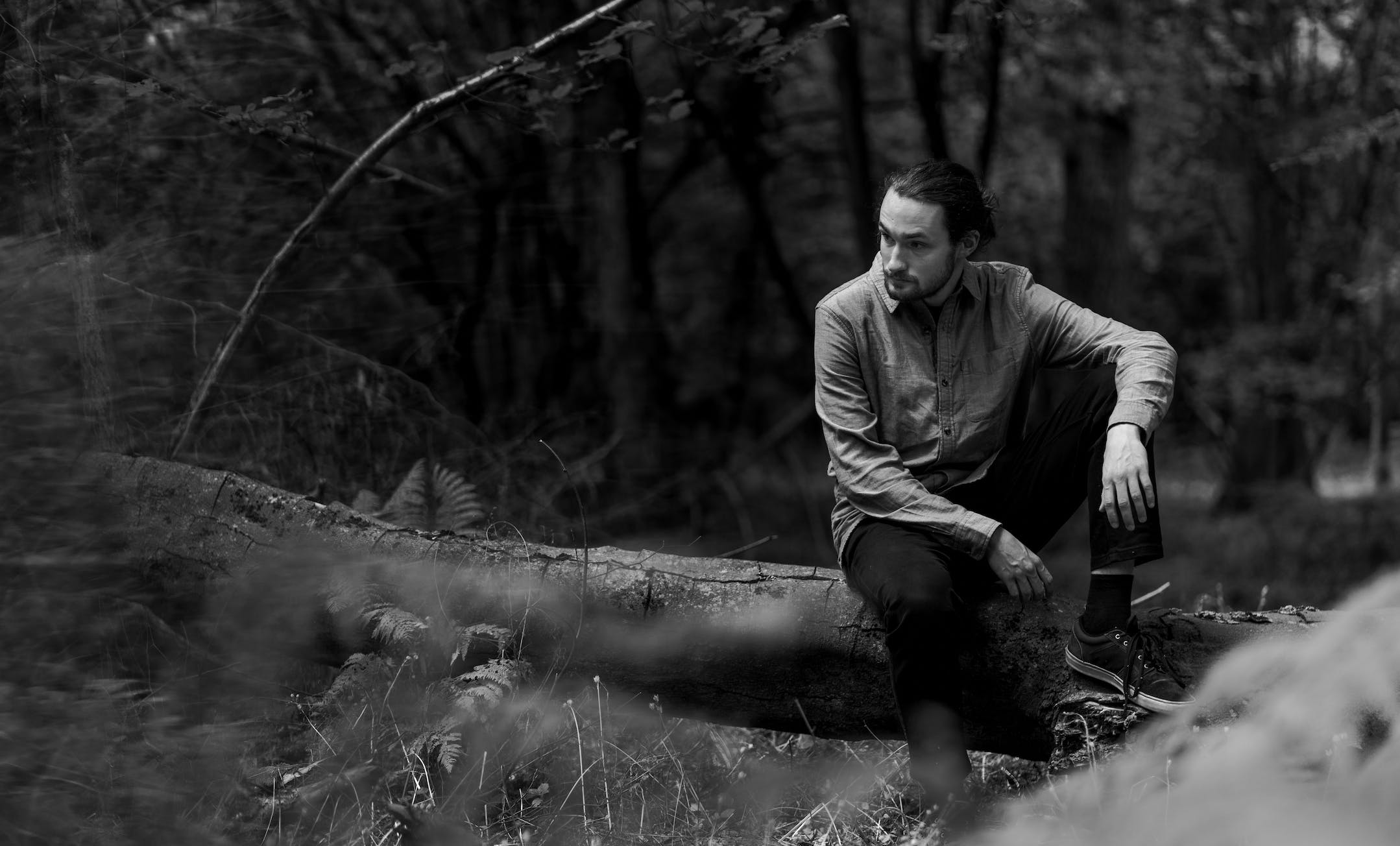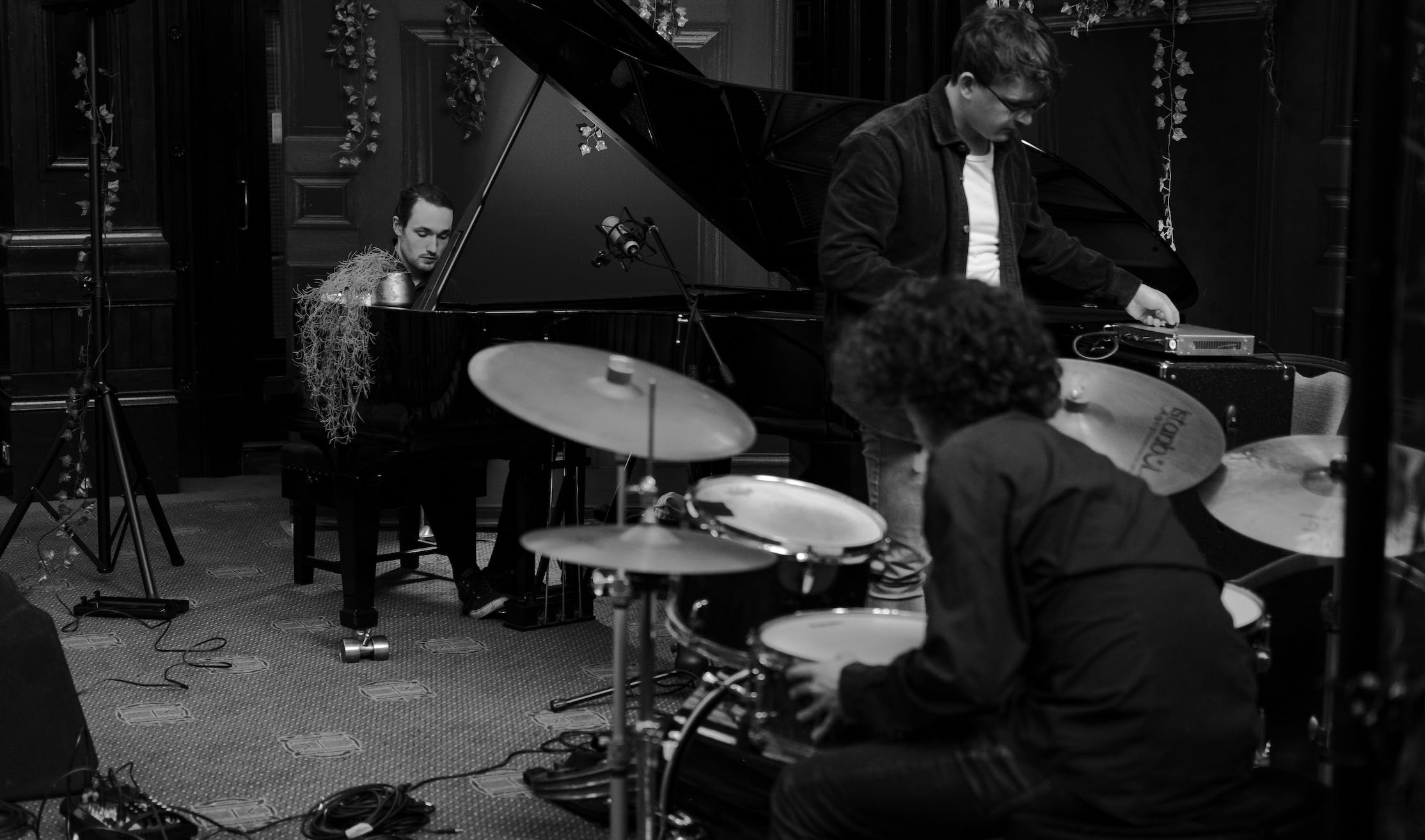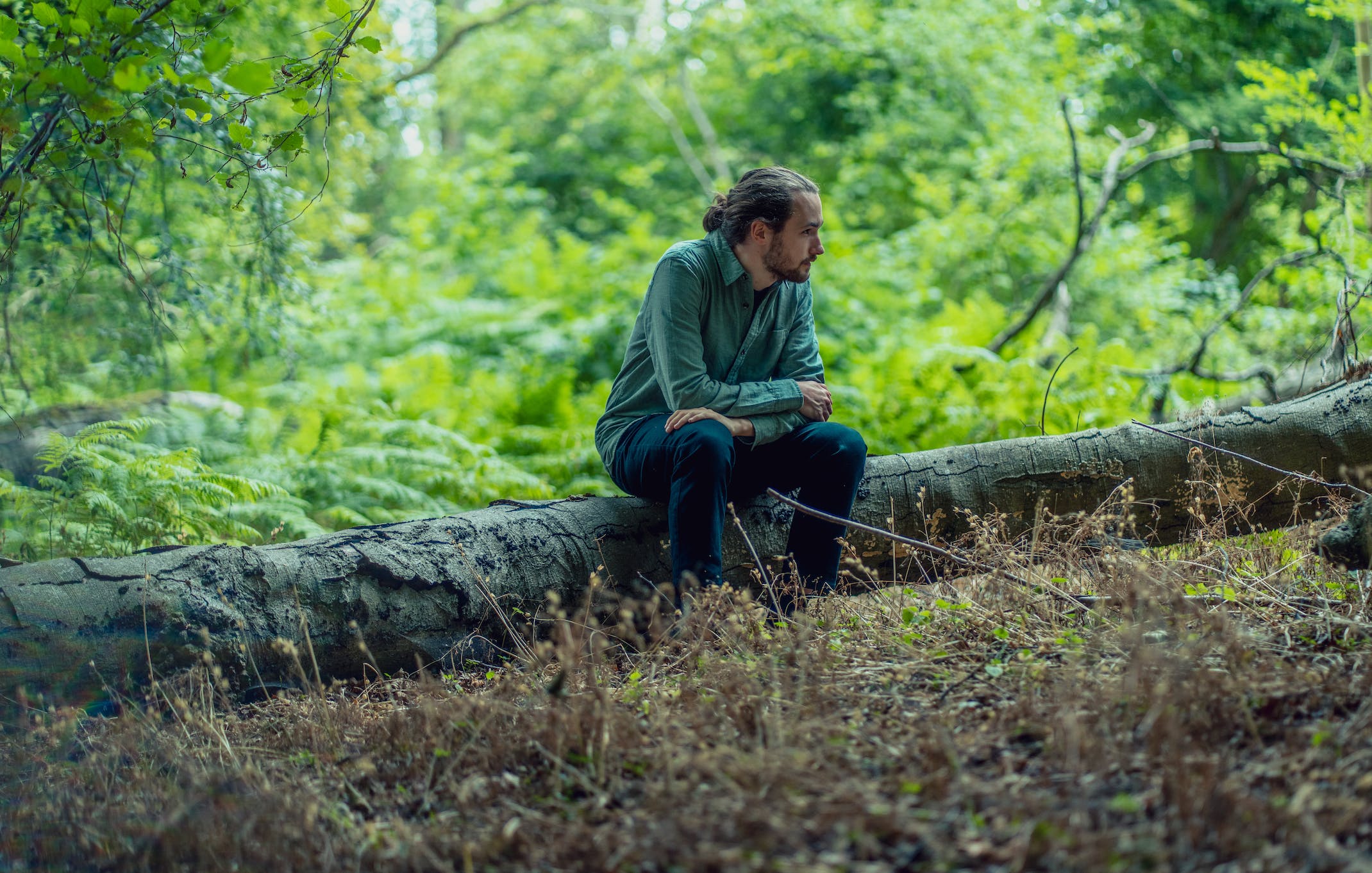Fergus McCreadie makes the kind of music that translates the sound of the landscape around him. Part of that comes from the pianist and composer’s intuitive nature, where he is at ease merging elements of Scottish folk and jazz throughout his work. As the only non-classical musician selected for BBC’s 2022 New Generation Artists, and a recent Mercury Prize nomination for his latest album, Forest Floor, alongside the likes of Harry Styles and Little Simz, McCreadie has found a place where his style is still niche but his sound is all-encompassing.
Graduating from the Royal Scottish Conservatoire in 2018, McCreadie met his trio to be, David Bowden and Stephen Henderson, and in the same year, released his debut album Turas. Like many musicians in the Glasgow jazz scene, he has formed his own brainchild whilst subtly dipping into other projects, from the nu-jazz groove of Liam Shorthall’s corto.alto to Graham Costello’s minimalistic STRATA.
To effortlessly jump between the projects he explains, is about understanding the musicians you’re playing with and the music they are inspired by:
“It helps me understand where they’re coming from and makes it easy to slip into a character when I play in a different band. It’s still obviously my own style of practice that I play, but you sort of edit out certain things that wouldn’t work in that scenario.”
 Fergus McCreadie, photo by Dave Stapleton
Fergus McCreadie, photo by Dave Stapleton
Laying down the mental groundwork in order to play intuitively is perhaps how we can better understand McCreadie as a pianist. But why the piano? “The honest answer is that it’s what my parents made me get music lessons in when I was younger,” he explains.
“I think every instrument has historically different purposes, right? Drums are never going to bring out that emotional aspect. A really skilled drummer can probably do it, but the drums aren’t going to bring that out because they’re made for something else. Whereas, pianos were invented for Mozart and Beethoven, and those were very emotional musicians. So it has historically been that way.”
Forest Floor invades your senses with the smell of plants after rainfall, the texture of lichen, and the sound of river trickling over moss. The album was created in two weeks which McCreadie started solely between mind and piano – the imagery followed on reflection.
“I was just walking around the forests in my hometown in Dollar a lot because I was staying with my parents at the time,” he said. “When I thought about the time periods I wrote the album in, it made more sense that it connected with that sort of imagery. So, that’s kind of how I chose the title and theme because the music came from that place.”
But the music came from somewhere else. McCreadie plays with vulnerability and intimacy which relies on a mindful state of peace. After reading Kenny Werner’s, Effortless Mastery ten years ago, he has since practiced meditation when playing to overcome anxieties and perform freely.
“That book talks a lot about using mindfulness to overcome the headspace of feeling like you’re not good enough or feeling like you can’t play properly,” McCreadie said.
 Fergus McCreadie Trio, photo by
Fergus McCreadie Trio, photo by
You can understand this state when watching McCreadie play live. His eyes are rarely open, and every note appears to use his whole body.
“I can kind of touch through my hands on the piano and go straight into that headspace. It’s like a bit of a trance I suppose,” he said “Ideally, when you’re playing, you’re not really thinking about anything apart from maybe what’s going to come next – you go into a flow.”
The ‘flow’ is where we find McCreadie at ease. Writing Forest Floor was a process of leaving control behind, and teaching the songs by ear to bassist David Bowden and drummer Stephen Henderson. “And then they came up with their own part to the tracks. What you hear is not only written by me – it really does become a trio tune.”
Leading intuitively is how Fergus McCreadie merges technique with emotion. It’s how the listener mirrors the musician and follows a mental rhythm of release. If instruments bring their own purpose to compositions, McCreadie’s piano speaks with a Dollar accent and leads off the beaten track to a place of expanding wilderness and quiet freedom.
Words by Maeve Hannigan
Photo credit: Fergus McCreadie, photo by Dave Stapleton
 Fergus McCreadie, photo by Dave Stapleton
Fergus McCreadie, photo by Dave Stapleton





